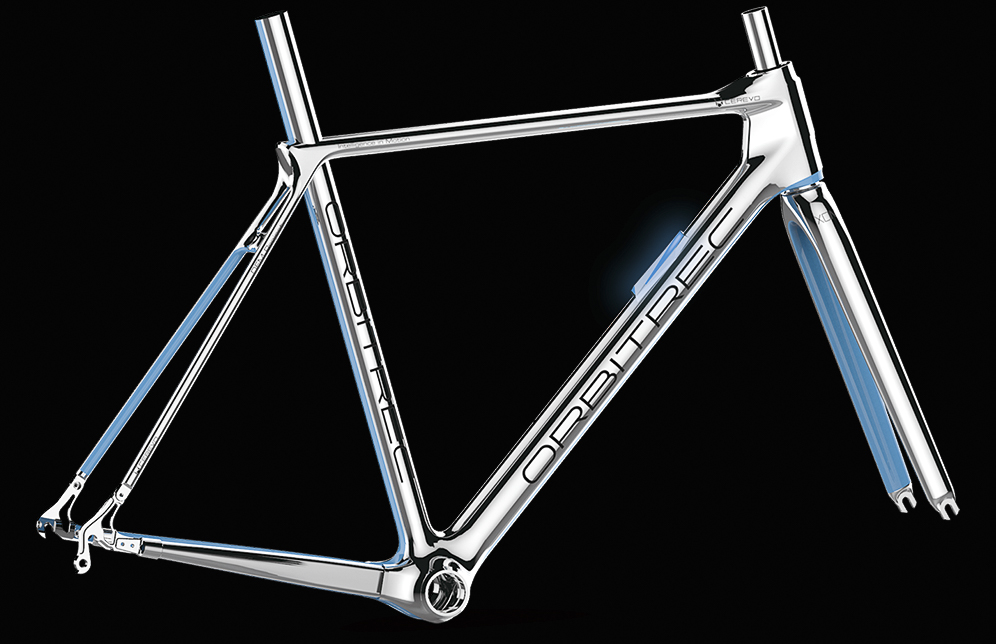


The Tokyo-based Cerevo, unveiled its titanium 3D printed road bike at the Consumer Electronics Show (CES) in Las Vegas this week – called the Orbitrec.
The 3D printed Orbitrec features a 9-axis internal sensor that can receive and send information via a companion smartphone app, that’s capable of tracking critical information for the rider, such as temperature changes and road conditions, and even sending out an alert in case of an accident.
Using 3D printing technology provided by NTT Data Engineering Systems, the Orbitrec’s frame was manufactured with sintered 3D printed titanium and bridged with high-quality carbon fiber tubes, which ensured that the parts could be mass produced with sufficient practical strength, while remaining light weight and with an eye-catching geometric design. In addition, each Orbitrec frame can be customized to perfectly fit each individual and 3D printed to exact specifications.
In addition to its strong and lightweight 3D printed parts, the Orbitrec’s frame includes various advanced sensors that can collect data and analyze it in the cloud in order to create a detailed ride log for cyclists and even make cycling more enjoyable and significantly safer.
Thanks to a 9-axis built-in sensor that measures acceleration, angular velocity, geomagnetism, as well as sensors for temperature, humidity, atmosphere and illuminance sensors, and a GPS, the Orbitrec 3D printed bike can detect and record location, environment, frame lean and even impact while riding. Recorded data can be analyzed in the cloud to create visual ride logs, and to alert riders to unsafe cycling conditions.

Additionally, the Orbitec benefits from Bluetooth and ANT+ connectivity, wherein the data can then be communicated with other devices and services. For example, illuminance sensors can tell the bike’s lights to automatically turn on when entering a tunnel; detected road bumps can be uploaded to cloud or to Twitter via the smartphone app, alerting other riders of changes in road conditions. And, in the case of a cycling accident, the impact sensors can automatically trigger an emergency SMS to be sent to a friend.
Designed and produced through a collaboration with Triple Bottom Line, DMM.make AKIBA, and ABBALab, the Orbitrec 3D printed bike can be used for either personal or professional riding. The company also promises a delivery time of less than one month with sales beginning in Spring 2016.
Cerevo also unveiled the RIDE-1 at CES, a clip-on sensor module that allows existing bike owners to use the same advanced sensors and connected features from Orbitrec on their existing bicycle frames.
Want one? Better save up some Yen, as the Orbitrec doesn’t come cheap at $7000.
ORBITREC Specifications:
Dimensions: TBA
Weight: TBA
Sensors: 9 axis sensor (acceleration, angular velocity, geomagnetism), temperature, humidity, atmosphere, illuminance, GPS
Bluetooth: 4.1 (BLE)
ANT+: equipped
Wireless LAN: IEEE 802.11b/g/n
Charging port: Micro USB
Ride time: 15 hours
Application OS support: iOS 8.3 or greater
Price: US$7,000
On sale: Spring 2016


